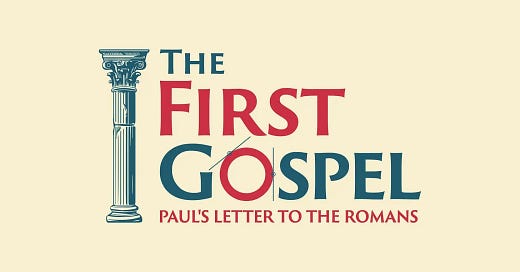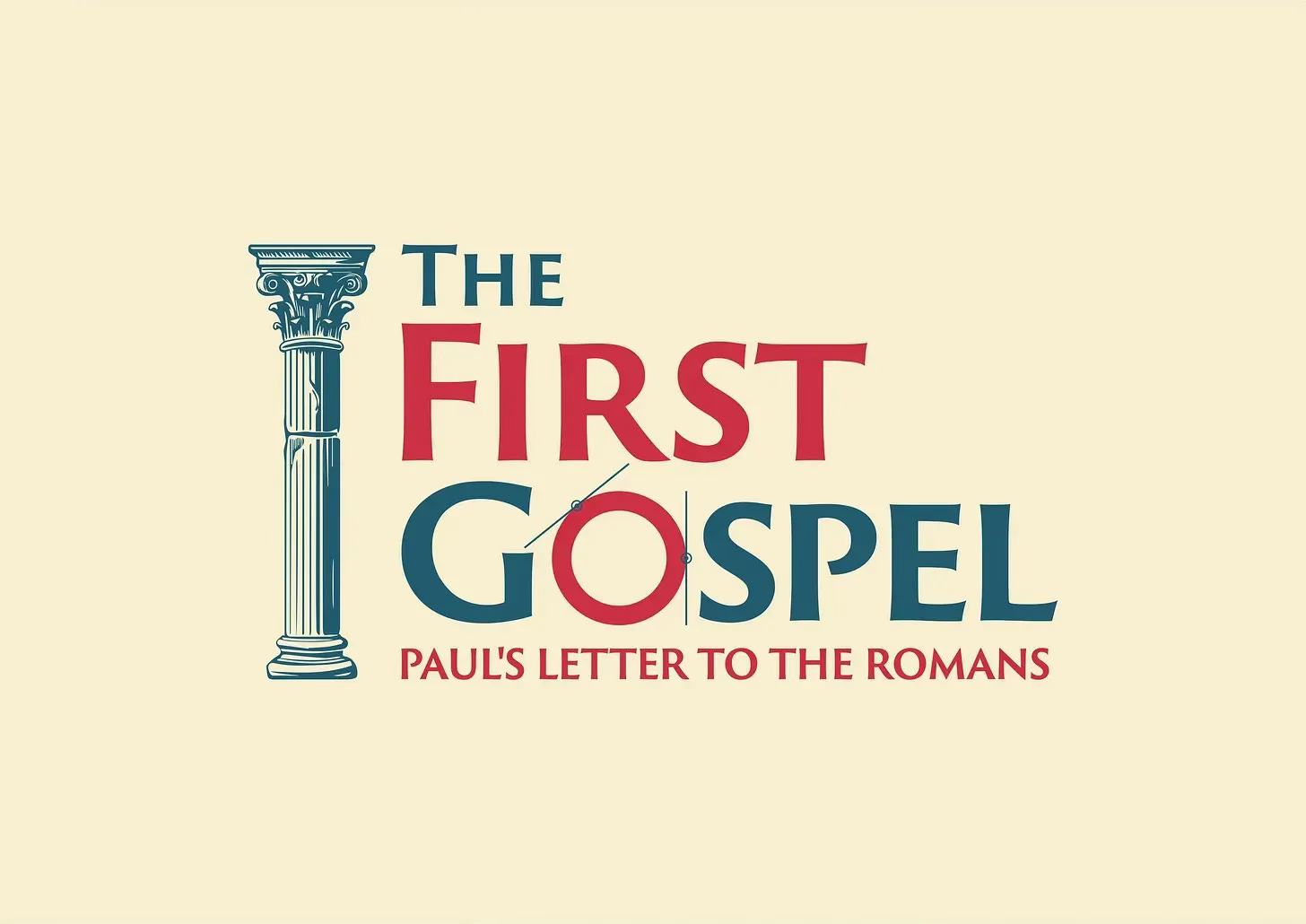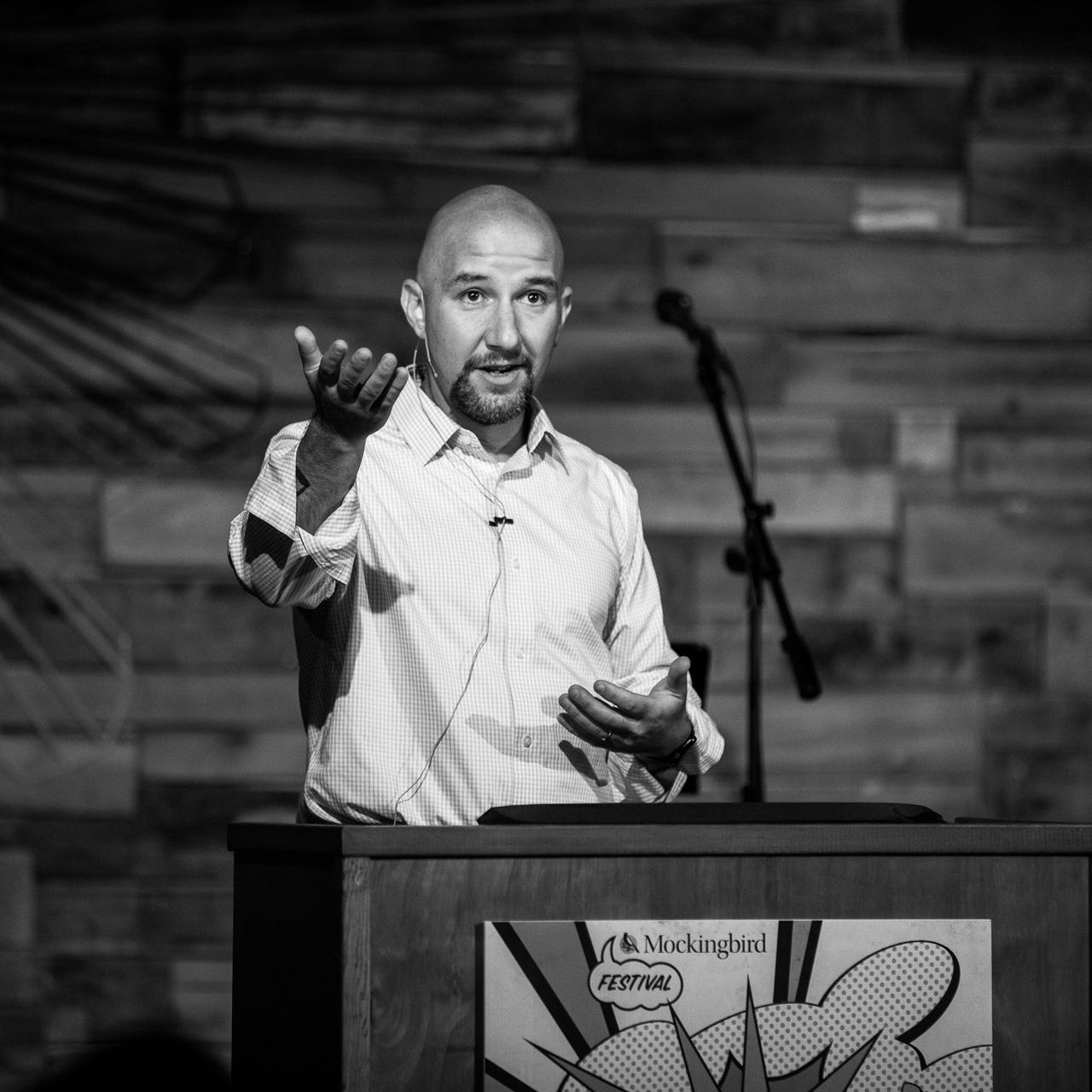Romans 16.1-16
My friend Ken Sundet Jones is a Lutheran preacher, who teaches theology at Grand View University in Des Moines, Iowa. Two weeks, Ken drove five hours northwest to hand over the goods at a church named after the thief who died beside Jesus, his pierced hand holding a promise that changed everything for him. St. Dysmas Lutheran Church is located within the razor-wired walls of South Dakota State Penitentiary in Sioux Falls.
Given the peculiar name for the parish and its particular parishioners, my friend took as his passage of scripture one of God’s last words, “Today you will be with me in paradise.” Kenny took that gospel word and he midwifed a miracle the world could never work. He uttered a promise only the Lord can promise. He made certain that every criminal, murderer, thieve, addict, molester, and rapist who heard him— everything nothing in state-issued khaki with “inmate” stitched down the leg of their scrubs— knew that that “you” meant me.
You, Inmate #39016, will be with him in paradise.
You, Jeff, will join him in the kingdom.
You, Michael, as soon as you die, the very next voice you hear will be Jesus calling you into the resurrection.
When you hear the Lord promise Dysmas, “Today you will be with me in paradise,” trust and believe that that you means me.
As my friend preached:
“Saint Dysmas died two deaths on Good Friday. His second death happened hours after the politicians and priests hastened the Lord's death, when Dysmas’s breath finally became air and his body was left on the tree to be scavenged and scattered. Dysmas’s first death, however, happened as a result of the short, simple sermon Jesus preached from one cross to another, “You will be with me.” That moment was a hinge, an axial point, a place that could be pointed to that had a distinct Before and After. With this promise from Christ, it was not possible that anything could ever be the same for Dysmas. No matter what he had done, his future was Christ. And so it is for you. I know full well how the world regards you who live on the hill as nothings. But when you grab a hold of the gospel by faith, you become more than somethings. It’s as good as God himself unlocking your cell door and buzzing the gate open onto a future you couldn’t have earned even if you’d never landed yourself inside. So let me hand over the goods. As a called and ordained servant of Jesus Christ our Lord and by his authority alone, I promise you: On account of Christ and by his merit alone, you will be with him. Trust and believe.”
It’s a simple word, the gospel.
It’s a word offensive for its unimpressive ordinariness.
It’s a short word even, reducible to you.
And yet scripture proclaims this Word has the power to give life to the dead and to justify the ungodly.
Ken handed over the goods.
Immediately, eight hardened lifers asked to be washed in the word; so that, like Dysmas, they would know the time and place Christ’s you became me. Eight men grabbed ahold of the promise by faith and asked to be baptized. Still another asked Ken to absolve him. He’s doing life for taking his girlfriend’s life. Ever since he did the deed, he’s been haunted by the knowledge that she did not die in the Lord. Ken heard his confession and pronounced the forgiveness of sins for him and, so doing, the gospel unlocked chains not even the state of South Dakota could bind on him.
It’s a simple word, the gospel, offensive for its ordinariness.
And yet, it— and nothing else— is the power of God.
Shame on us, then, if we think politics more interesting, standard bearers more compelling, and elections more urgent than this little Word that is able to “call into existence things that do not exist.”
On December 10, 1933, not long after Election Day, Karl Barth preached in the Schlosskirche at the center of the University of Bonn in Berlin where he was Professor of Theology. Already the university, just like most of the church, had acquiesced to the demagoguery of the new administration. On that day in Advent, Barth stood in the university pulpit and preached on a passage from Paul’s Epistle to the Romans. Members of the Gestapo lurked in the back of his lecture hall, monitoring him. After worship, Barth left the Schlosskirche, folded up his sermon manuscript, slid it into an envelope, and sent it off to the new, popularly elected president.
Soon after, Barth was fired from his position and exiled back to his home in Switzerland. Bidding their teacher and preacher a tearful farewell, Barth’s students asked him for a benediction. Famously, Barth responded, “Exegesis, exegesis, exegesis.” In other words, our only hope as the world hangs on the precipice is to proclaim more stubbornly than ever before the Word that is alone the power of God. Those same students asked the departing Barth how they, as preachers, should respond to the recent election, to the antagonism in their nation and to the riven nature of Christ’s church.
Barth’s surprising reply confounded them.
“Preach,” Barth insisted, “as if nothing happened.”
That is, as a Christian, do not be fooled. And as preachers, do not fool others. The real world, what’s really going on in the world, the true state of reality— no matter what your eyes see or the headlines say— is that Jesus Christ is Lord and is, through his gospel promise, drawing all things unto himself.
“How can Adolf Hitler be a nothing?” Barth’s students protested.
But Barth insisted, “the little man in Berlin is not the Lord of History;” therefore, do not commit the sin of making that little man in the capital more fascinating than the only Word that is able to work what it says.
You will be with him.
Whether you voted for the man headed to the capital come January or for his opponent, we are all guilty of being more animated by our politics than by the gospel. And there is no mystery as to the why. After all, when we draw lines and pick sides, we get to choose the company we keep.
This is the whole point—they’re tribes!
But the Lord of History has a habit of thrusting upon us brothers and sisters we never would have selected for ourselves.
The little Word of the gospel not only justifies the ungodly, it calls into existence a community of no one’s choosing save Jesus Christ.
As the woman charged not only with delivering his epistle to the church at Rome but interpreting it for them too, Phoebe receives the most elaborate introduction of any person found in the New Testament. In exhorting the Christians in Rome to welcome her “in a manner worthy of the saints,” Paul refers to Phoebe as a prostasis; that is, she is a benefactor of the church. She is sufficiently wealthy so as to be able to afford to take the time to travel from Corinth to Rome to deliver Paul’s letter. Moreover, she could not only read the epistle but interpret it for them. This implies Phoebe was more than literate; she was educated. And notice, Paul does not mention Phoebe in relation to a husband. Whatever wealth and status Phoebe possessed she possessed them on her own.
She’s rich!
Just so, Phoebe is not vulnerable in the way many are in the church at Rome. By all measures, the empire that would kill the apostle Paul was working for Phoebe. She’s able to be the church’s benefactor because the empire was benefiting her. The little man in Rome’s administration has been good for her portfolio.
By contrast, the next two names Paul names, Prisca and Aquila, are slave names— Jewish slave names. Paul refers to all three as his “fellow workers in Christ Jesus.” According to Luke, Prisca and Aquila fled Jerusalem after the Edict of Claudius, which banned Christians from Caesar’s cities for upsetting the status quo. Prisca and Aquila met Paul in Corinth and then ventured to Ephesus with him.
Once again, the empire had expelled Prisca and Aquila from their homes; but now, on account of the gospel, they were working alongside Phoebe for whom the empire had worked quite well.
From there, Paul greets twenty-four more believers in the church at Rome. Sixteen of them are male, and eight of them are female. Still more are gathered up anonymously as “those who are from the household of Aristobulus” or “of Narcissus.” In other words, the slaves of Aristobulus and Narcissus. Some of the twenty-four names in Paul’s greeting are Jewish names; these believers he refers as “my kinfolk.” Many of the names Paul names originate in neither Rome nor Israel but in the Greek East. Remarkably then, in Rome the gospel has created a community that also includes immigrants. Thus, Paul calls Epaenetus, whom he also mentions at the end of his letter to Corinth, “the first fruit of Asia.”
Rich and poor.
Female and male.
Imperial and oppressed.
Pagans and Jews.
Slaves and immigrants.
From the very beginning, the gospel not only justifies the ungodly, giving new life to the dead, it blurs the lines between Us and Them.
Will Campbell was a Baptist preacher and activist during the Civil Rights movement. Unlike a lot of preachers from that era, Campbell was committed to the biblical belief that the living God is at work not only on the progressive side of the political divide but also on its conservative end. Likewise, Campbell drew deeply from the well of the Reformation and its reading of Romans, and Campbell refused to impute innocence to anyone on either side of partisan issues.
Will Campbell was present in 1998 for the Mississippi murder trial of Sam Bowers, the Grand Imperial Wizard of the Ku Klux Klan. Bowers stood accused of killing several people, including Vernon Dahmer, a local leader in the voter registration effort. Bowers was tried a third time in 1998, the first time that his trial would not be a sham trial, and Campbell attended his trial every day.
And every day Campbell bore witness to a controversial kind of community.
On one day, the preacher would sit on the prosecution side with the Dahmer family, offering comfort and praying with them.
On the next day, he would sit on the defense team's side, comforting Bowers, the Klan's men, and praying with them.
Day after day of the trial, Campbell alternated sides.
He ministered to the family of the victims one day.
And then he ministered to the victimizers and their families the next day.
When the trial was over, a flummoxed New York Times reporter asked him, “Mr. Campbell, why do you seem to be on both sides?”
And Campbell answered:
"Because I'm a god-damned Christian!”
Phoebe’s name comes from Greek mythology. She is a Gentile, from Cenchreae. In other words, the Letter to the Romans— perhaps the most consequential item in the New Testament— its sole link between the apostle Paul and posterity is a woman called out of paganism by the Lord who speaks through the gospel.
Notice—
Though she is a pagan, though her politics are all wrong, though she is in a problematic tax bracket, Paul nevertheless calls her, “our sister.”
Quite simply, Paul regards his relationship to Christ as the most important fact of his life, and, by extension, his relationship to this ungodly woman whom the Father’s Son has made a sibling.
And then there’s Junia. According to Paul, not only is she an apostle according to Paul, Junia, along with Andronicus, is an ex-convict. Like Paul, she was victimized by the administration responsible for Phoebe’s windfall, but now she and Phoebe both are fellow laborers in the gospel.
Just like Will Campbell, Junia might be the first to admit that the only explanation for the company she now keeps is Jesus Christ.
The Tuesday before Election Day I attended an ecumenical lunch for area religious leaders. In no time, the conversation turned to the little man in the capital and who might replace him. After remarking with satisfaction that their congregations were completely homogenous politically, two clergy asked me about my parishioners.
“I don’t know that my church is of one mind on anything much less politics,” I said, watching the reproach crease across their faces, “In fact, I like to think the only explanation for the messy range of perspectives in my congregation is that Jesus Christ is not dead. He’s made them sisters and brothers, and— you know how it is— you can’t choose family.”
The church father John Chrysostom likened this list of names to the Bible’s genealogies which most readers are more than likely to skip past. The genealogy in Matthew comes at the beginning of his Gospel. Likewise, in all his other epistles Paul puts his salutations at the top. In the rest of his writings, he sends his greetings at the very start.
But here in his most comprehensive and theological work, the apostle places them at the end.
Why?
Contrary to what Chrysostom quipped, Paul’s final greetings are neither an afterthought on the part of the author nor an unnecessary appendix for the reader.
This list of names is instead the exemplification of what Paul has argued for fifteen chapters.
For over four hundred verses, Paul has proclaimed that the promise justifies the ungodly. For over four hundred verses, Paul has declared that Jesus Christ takes sinners and enemies and makes them righteous and friends— his friends and friends of one another. For four hundred and six verses, Paul has preached that the gospel is the power of God to absolve trespasses, undo the Power of Sin, give life to the dead, and call into existence things that do not exist.
And after fifteen chapters, finally in these last few verses Paul names names as proof of what he’s preached.
As though, look— this is what the gospel has created.
Phoebe and Prisca and Aquila and Epaenetus and Mary and Adronicus and Urbanus and all the household of Aristobulus and Narcissus and all the rest of the names Paul names, they are Exhibits 1-27 of the word that works what it says.
Rich and poor.
Female and male.
Colonizer and colonized.
Victims and victimizers.
Pagans and Jews.
Masters and slaves and strangers.
This is the kind of company Christ keeps. This is the church only he would choose. This is the community the gospel creates.
Shortly after he preached it, my friend Ken told me about his sermon at St. Dysmas Church.
“I don’t know that I’ve heard of any other sermon eliciting so many demands for baptism and absolution,” I said to him.
“I think its due to the fact Christians distract ourselves with other words— especially the closer you get to a place like Washington DC. We busy ourselves with other words because we’re afraid of what the gospel does. The gospel makes siblings of odd bedfellows. Take it from me. This bow-tie wearing PhD from the Ivory Tower never imagined he’d have to call Inmate #39016 “brother.” I tell you, it’s unnerving stuff; nonetheless, it’s like Luther said, “Preach Christ or be silent.”
The year Paul drafted this letter, Tiberius Claudius Caesar Britannicus, heir to the imperial throne, died under mysterious circumstances in Rome, clearing the way for Nero to become emperor— Nero, the worst villain in the history of Christianity. Yet the apostle makes no mention of this “news.” Paul spares not syllable on the little man in Rome. Instead to a church that included slaves and ex-cons of the empire, Paul refers to a well-heeled citizen of Nero’s nascent administration as “our sister.”
In other words—
Like Jesus says from one cross to another, Paul promises them, “You will be in paradise with her."
At the end of his salutations, Paul summons the believers at Rome to greet one another with a holy kiss; that is, with the Christian sign of reconciliation.
Similarly, in his first letter to the Corinthians Paul exhorts the church to “discern the body” before they come to the table’s loaf and cup. The context makes clear that by “discern the body” Paul does not mean the bread or wine themselves; he means the diversity of members that make up the Church body. Paul’s admonition to discern the body was, in Corinth, a rebuke of the way in which the Church had segregated along partisan lines.
Thus, scripture instructs us to celebrate the Lord’s Supper in such a way that we are forced to reckon with the nature of the motley crew Jesus draws together. To celebrate with bread and wine in a way that allows you to avoid those whom you would never choose as friends is to celebrate something other than the Lord’s Supper. In the same passage, Paul warns that “those who eat and drink without discerning the body of Christ eat and drink judgment on themselves.”
So before you come to the table, look around at the gospel’s aftershocks. See the sorts of odd bedfellows the Son has made your brothers and sisters. Trust me— I can show you my inbox— there is precious little upon which you all agree. The only explanation for you is Jesus Christ.
Take a look before you take the bread that is his body and the wine that is his blood. Perhaps not today. Maybe not tomorrow. But soon and very soon— I promise you— you will be in paradise with the likes of them.



















Share this post